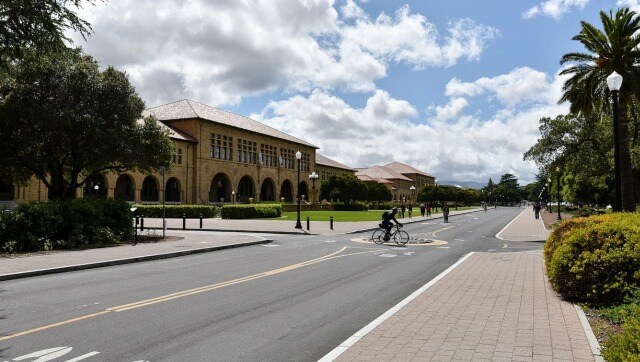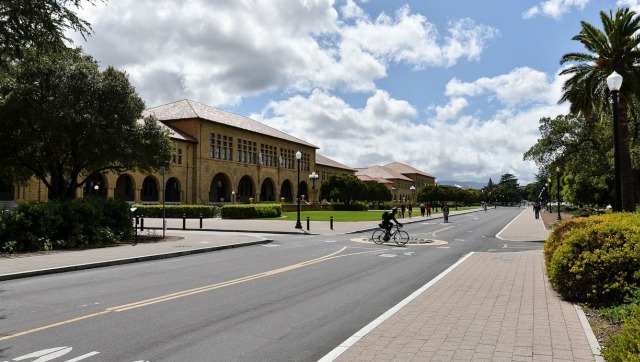With universities across the globe shut down because of the coronavirus outbreak, a large number of Indian students continue to live away from family at a time they need an emotional anchor the most. On 12 April, Indian National Congress spokesperson Jaiveer Shergill questioned the Centre why Indian students stranded abroad are not being evacuated, while the government is in “active mode” to help foreign nationals stuck in India. “The BJP (Bhartiya Janata Party) government is in ‘active mode’ for foreign nationals and is in ‘sleep mode’ for Indian students stranded abroad in this hour of global crisis,” Shergill said in a statement. Away but not ‘stranded’ But a lot of the Indian students still in their dorms, private accommodations or at a relative’s place, away from their immediate families, say they are not feeling ‘stranded’ or ‘stuck.’ Some of them claim they are used to living by themselves for they left their parents’ shelter years ago. Certainly, during a global crisis like this, they admit they feel the need to be in constant touch with their parents but technology has bridged the gap. Apps like Facetime and WhatsApp video calling have allowed them and their parents to combat emotional distancing. [caption id=“attachment_8280291” align=“alignnone” width=“640”]  Representational image. Pixabay[/caption] If given a choice, would they have taken the plunge and returned to India rather than stay away from family? Many were not in favour of doing so, at least under the circumstances they were in when they had a choice. “I think it’s much safer for everyone, including me, to stay put where they are. Going back would’ve put the safety of my parents, as well as (that of) potentially society, at risk, and definitely mine too. Moreover, I’m not facing any problems here so I don’t see any reason for me to go back. It’s just a matter of coping with living alone, and I think that’s a small challenge compared to the risk I’ll be putting everyone at if I went back,” says Mayank Sehgal, currently pursuing MBA from HEC Paris. Aditya Tank, who studies at the Kelley School of Business at Indiana University in the United States, reasons that even if he braved the risk of infected airplanes and airports, it was too late for him to escape the state quarantine. “By the time I could travel, it was already 16 March, when India had made 14-day state quarantine compulsory for anyone coming from the US. So even after going through all the hassle, I’d have to spend two weeks away from family. My parents were obviously worried but they got my decision when I explained the above point to them. So as of now, we’re looking forward to the time when there are no restrictions, and I can come back without having to stay in the state quarantine.” Another hurdle that is stopping the students abroad to return to their parents’ comfort is the time difference between both the countries. Since a majority of the colleges across the globe have converted the classes online (through Zoom or similar conference video calling app), they will have to wake up at odd hours in order to ‘attend’ the classes. “My classes and assignments are still going on so I didn’t want to go back to India only to operate on a 9.5-hour time difference. It didn’t make sense,” says Varun Natu, currently in Pittsburgh, who believes he would barely get the time to spend quality time with parents in that case. State intervention Besides these technical and logical reasons, many also have the administration, either the government or the college, to blame for not acting well within time. “You know how lax the US has been about their response to the pandemic. When my parents had asked me to fly back, at that point, my university had declared the online class setting till only 6 April,” says Aditya Tank. Even after the change was made subsequently to extend the online classes till the end of the semester, it was already too late to travel. Pranati Sharma, pursuing MBA in Trinity College in Dublin, Ireland, recalls the college administration initially took drastic steps to curb the spread of coronavirus, which resulted in complete chaos among the students. “We got a mail from college on the night of 15 March, giving us three days to vacate all the student accommodations under Trinity, even the private ones. However, the college sent a clarification mail a day later, allowing students to stay. This created a lot of chaos, and 90 percent of the people, including Indians, booked flights on 15 March itself for the very next day to return to India.” While Pranati chose not to travel even after the college’s rather knee-jerk approach, Amishi Agrawal, studying at the University of Tokyo in Japan, has a different story to tell. “We haven’t had a lockdown yet. A state of emergency was declared a few days ago but there are no rules in place. Most places are open, and you can go out if you want to. The greater challenge here is to ensure you’re safe since the government isn’t doing much on that front, and also the linguistic barrier. For now, we’re just reading up more, and pushing for stricter rules within our dormitories.” ALSO READ: Under lockdown in Europe, Indian students go online to protest inequalities back home, keep up with academics She explains how the lack of awareness by the state can make the pandemic even worse, if not for the information coming in from other countries. “I thought at the start that Japan was handling it very well. It turned out that was a lie as Japan was trying to conceal information because they wanted to host the Olympics (which was later pushed tentatively to 2021 ). Had I known the situation in Japan was so grave, I’d have definitely gone back to India then.” Even Sweden seems to be not taking the crisis as seriously despite rising cases in the country. Sarthak Prakash, currently pursuing a Master’s degree in Biomedical Technology from Chalmers University in Gothenburg, Sweden, says the lockdown is not as stringent as the one in India despite similar graphs in coronavirus infections in both the countries. “There are no restrictions at all. All the pubs and restaurants are open. The only change I’m facing is online classes and virtual group meetings. People are advised to maintain social distancing. The population of Sweden is about 10 million, and they have 10,000 cases now (by the time his input was taken). It’s mostly concentrated in Stockholm so the rest of the economy is open. They (government) fear bad repercussions if the restrictions are imposed for an extended time.” Mayank, however, is grateful to the French government for its transparency in dealing with the crisis. “They’re communicating with us very clearly what’s happening and what’s going to happen (as far as they know). The confinement has been extended till 11 May, after which things will gradually open up again. Even alcohol and cigarettes are available. We’re allowed to go for a walk within 1 km radius of our residence.” Daily chores, increasing constraints Besides the occasional long queues outside grocery stores in Paris and ordering grocery for a week in advance in Pittsburgh, regular supplies has not been the primary issue for most of the students abroad. But Taruna Venkat, currently pursuing a Master’s in Science Degree (Tropical Biology and Conservation) from James Cook University in Townsville, Australia, says constant delay in the lifting of lockdown will only worsen the situation for students monetarily. “I’m concerned about stretching out my savings, and avoiding asking family for money given they also require to save up. I’m also concerned about them, since they’re aged and live in Mumbai, which is rapidly becoming a hotspot of the coronavirus spread.” Tashveen Bagga, enrolled in a Master’s course in Fashion and Entrepreneurship at RMIT University in Melborune, Australia, still gets chills thinking about the day he realised the graveness of the epidemic. “I remember I went to a supermarket to get grocery but there was absolutely nothing there because of panic buying. All the racks you think will never be seen empty were like that. It’s the basic requirement, and it wasn’t available. That hit me hard when I went back home. Things are much better now.” Apart from the daily chores of cooking, clean, and buying grocery, what is keeping all the students busy are the online classes by the university and work from home for any internship or training they were employed in beside the college. Naman Jain, working as a Master’s student at Max Planck Institute of Nuclear Physics in Heidelberg, Germany, explains why despite the lockdown period being “an introvert-heaven,” the lack of interpersonal contact is getting to his nerves now. “Research groups are incredibly important for reasons more than just academic discussions. It’s getting limited because of the ‘indirect-ness’ over mails or video calls. The productivity isn’t as much if one doesn’t discuss or collaborate,” he says. He adds he did not contemplate going back since he had only two months of training left after working there for over nine months. “My parents have spent most of the time mulling I should’ve come back when I could. But I get their concern. They don’t know it’s safe around here, groceries and medical help are easily available, people are cooperative, and there aren’t as less number of people on the streets as I’d expected.” Life-altering events stand altered It is certainly not easy to withdraw when one is so close to the finishing line. Both Purushartha Singh (BSc in Computer Science from Pennsylvania State University) and Aditya Tank were days away from their respective convocation ceremonies. “My parents were scheduled to come here from India, and then we had a little tour planned. But obviously now, all that has gone for a toss. After online classes, home assignments, and online exams, the university is even planning an online convocation,” says Purushartha. As strange as online convocation sounds, Aditya is hopeful his university will have a flesh-and-blood ceremony whenever the situation is completely normal. “But my visa is expiring soon so I’m planning to go back to India at the end of May, hopefully.” [caption id=“attachment_8280301” align=“alignnone” width=“640”]  Representational image. Reuters[/caption] As some are busy getting to the end, others starting their journey have their own issues to deal with. Arunima Gitai, studying Counselling and Psychotherapy at Edith Cowan University in Perth, Australia, details her struggles to find accommodation. “I landed in Perth on 29 February, and the lockdown started here in the first week of March. Everyone was already on the edge about the virus. Most of the people were wary to give rented accommodation to people, especially who had arrived in the country recently. Everyone whom I spoke to would ask me when I landed, ask me to show my travel documents, ask if I got tested, or if I had a connecting flight from China.” She adds a “sweet woman” empathised with her situation and asked her to move into a rented accommodation immediately. But she confesses she had a terrible time putting up at a temporary accommodation for a week. “It was very hostile to live among aggressive people who would ask me, sometimes even in every couple of hours, when I’d move out, or who told me I should go back to India. The epidemic was bringing out the worst in people. Humans are mean, aggressive, and self-preserving by nature, and the circumstances just happen to bring that out more openly.” Logistical issues like these only tend to add to the mental and emotional toll a young person goes through, particularly in the absence of a familiar environment. But all students across the globe that this writer talked to were on the same page of not returning to India especially because of the risks in travel involved. They would end up making their ’new home’ more inhabitable, and are determined to get through with the crutch of technology, creative pursuits, and by just observing nature heal itself. Naman’s parting words give many like him hope that the spring is not far behind. “Nature was incredibly beautiful since I came here. Nothing has changed (on that front). It’s just that spring has come around, so it’s more pretty out here, but nothing else.” (Click here to follow LIVE updates on coronavirus outbreak)
Indian students may not consider themselves ‘stranded’ owing to the crutch of technology but they do have substantial issues to deal with at a young age.
Advertisement
End of Article
Written by Devansh Sharma
Twitter handle - @inkedinwhite see more


)
)
)
)
)
)
)
)
)



